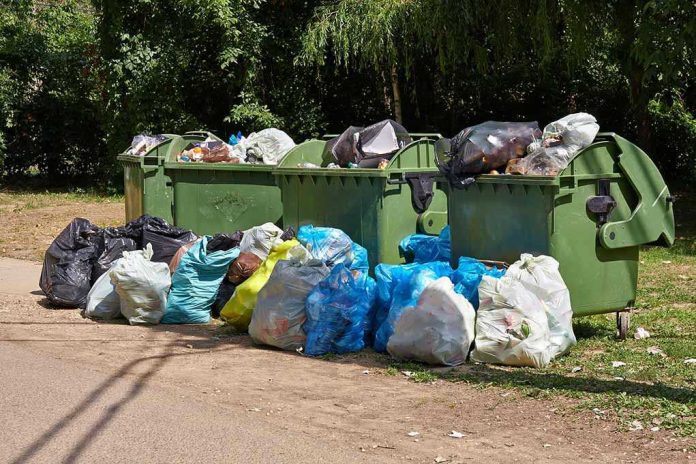
Unveiling the plastic recycling myth reveals a tale of decades-long deception by industry giants.
Story Overview
- The plastics industry misled the public on recycling’s feasibility.
- Internal documents show knowledge of recycling’s limitations since the 1970s.
- California’s lawsuit against ExxonMobil highlights the industry’s deception.
- Recent reports expose “advanced recycling” as another misleading tactic.
Decades of Deception in the Plastics Industry
The plastics and petrochemical industries have long portrayed recycling as a viable solution to waste, but evidence reveals a different story. Internal documents dating back to the 1970s indicate that industry leaders knew large-scale recycling was neither technically nor economically feasible. Despite this, they promoted recycling to protect profits and avoid regulatory scrutiny. The narrative of recycling as an effective solution was cleverly crafted to maintain production levels and deflect environmental concerns.
In 1988, the introduction of the “chasing arrows” recycling symbol further solidified the myth that plastics were widely recyclable. This symbol, familiar to most consumers, became a powerful tool in convincing the public of recycling’s efficacy. However, the reality is starkly different, with less than 10% of plastic ever produced being truly recycled. The majority of plastic waste ends up in landfills, incinerators, or the environment, contributing to severe pollution and health risks.
Legal Battles and Exposures
The Center for Climate Integrity (CCI) released a report in 2024, exposing the deceptive practices of the plastics industry. This report fueled a lawsuit by the California Attorney General against ExxonMobil, citing evidence of the industry’s knowledge and intentional misinformation. The lawsuit and ongoing investigations have brought to light the lengths the industry went to protect its interests, including promoting “advanced recycling” technologies that are largely ineffective and non-existent on a large scale.
These legal actions have significant implications for the industry, with potential financial liabilities and reputational damage. They also highlight the need for stricter regulations and a reevaluation of waste management strategies. The ongoing legal proceedings underscore the importance of transparency and accountability, pressing industries to align with environmental and public health priorities.
Public Awareness and Industry Response
Public awareness of the recycling myth is growing, leading to increased scrutiny of industry claims. Consumers and policymakers are calling for more sustainable practices and alternatives to plastic production. Environmental advocacy groups continue to challenge the industry’s narratives, pushing for systemic changes in materials management and encouraging investment in alternative materials.
The industry’s response has been mixed, with some continuing to tout “advanced recycling” as a solution, despite skepticism from experts and insiders. The pressure to innovate and adapt is mounting, with insurers and investors reassessing the risks associated with plastic-related liabilities. The broader impact on the waste management sector and related industries could lead to significant shifts in how materials are produced and managed.



